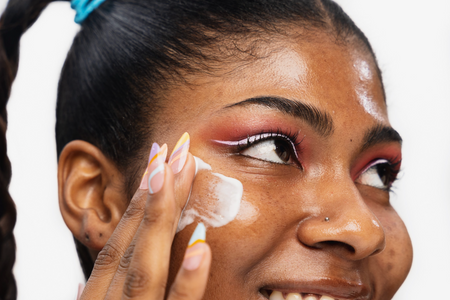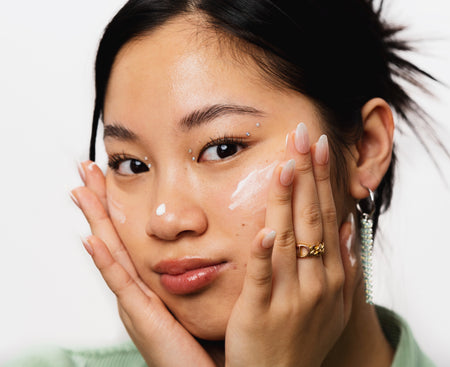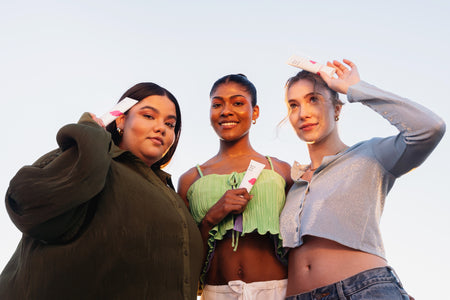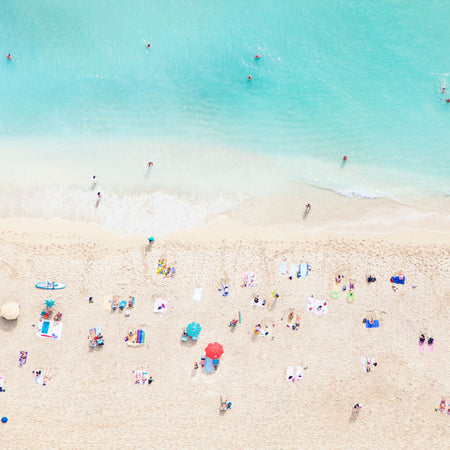Sunscreen is Your Best Friend

“It’s cloudy outside. Do I still need to wear sunscreen?”
“I have a dark skin tone. Do I still need to wear sunscreen?”
“I’m a teenager. Do I still need to wear sunscreen?”
Yes, yes, and YES.
We need sunscreen every single day, not just for when we are in the direct sun! And here’s why:
1) Wearing sunscreen prevents skin cancer
Sun damage ACCUMULATES. So even if you’re ONLY in the sun on your walk to and from work, it can add up, day after day, year after year. Aim to develop good sunscreen habits in children so that it can easily carry on into adulthood!
People with darker skin tones also need sunscreen.
While skin cancer rates are lower in people of color, it still happens and can be potentially more dangerous because changes in moles or other pigmentation may not be as easily noticed. Skin cancer in people of color often occurs in odd areas that get the least sun, such as the palms, soles of feet, and beneath the fingernails/toenails.
While having more melanin in your skin means fewer UV rays get through, the melanin itself is still susceptible to change and damage from the sun! Melanin can get darker when exposed to UVA and new melanin can also be produced.
Everyone at every age is susceptible to skin cancer, therefore sunscreen is for everyone.
2) Sunscreen is the best anti-aging product
Sunscreen is the best investment if you want to dive into the world of anti-aging. It’s easy to find a woman in their 40s and 50s regretting the days of baking in the sun. Believe it or not, 90% of the signs of aging are caused by the sun and can make your skin leathery and less firm over time.
The collagen factory in your skin runs 24/7. It produces collagen, recycles it, and renews it. The factory starts to function slower with as we continue to age and with sun exposure.
HOW?
Exposure to UVA and UVB from the sun turns on your collagen shredders (MMP-1 and MMP-3) speeding up the breakdown of your collagen. Luckily, we have our sunscreen on hand. Studies show that sunscreen can reduce the chances of that happening!
3) Prevent hyperpigmentation
Let’s say your top skin concern is hyperpigmentation/discolouration. Please don’t tell us that you’re investing in expensive vitamin C, AHA, and other skin-brightening products but skipping a sunscreen! Let’s set things straight.
Regular sun exposure, even if it’s just a little bit a day, gradually changes the way pigment appears on your skin. Melanin-producing factories (melanocytes) sit at the lowest layer of your epidermis to produce and gather the melanin into little packages (melanosomes). These packages are then delivered and distributed among the top layer of your skin.
The best way to prevent hyperpigmentation after the acne goes away, is to put sunscreen on it consistently and liberally! For extra protection, coat another layer of sunscreen on the spots that are more prone to sun damage.
4) Sunscreen is a non-negotiable for acne prone skin
We hear our founder, Liah, talking a lot about ‘Lipid Peroxidation’. Lipid peroxidation is basically a process where your sebum (oil on the skin) being oxidized by sun exposure, free radicals, and other environmental factors.
Oxidized sebum exacerbates acne as it thickens the sebum which has a higher chance of clogging pores - that doesn’t sound fun at all. So wear that sunscreen and look for antioxidant-rich skincare to prevent this from happening!
5) Flushed skin? Wear sunscreen.
If you already have flushed skin purely by walking outdoors, it’s possible that you are already sunburnt. Not all sunburns end in blisters - mild burns usually show up as red patches (erythema) that are warm and sensitive to touch. The redness from these types of burns take about 3-5 days to clear.
Having these mild sunburns repeatedly also SIGNIFICANTLY increases your risk of future skin cancer, so definitely put on sunscreen to avoid getting sun-induced redness (erythema)!
Convinced that sunscreen is your best friend? Make sure to apply ENOUGH and bring it wherever you go so that you can reapply throughout the day!









